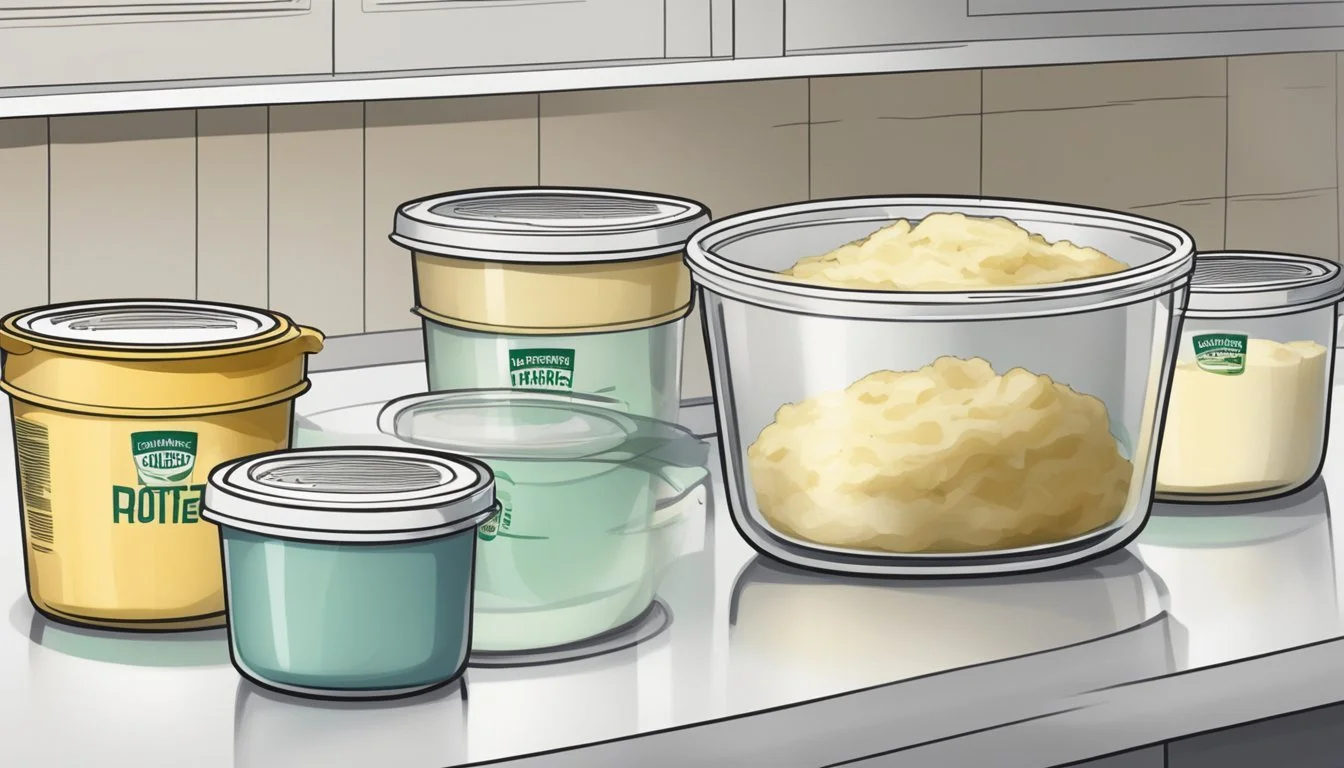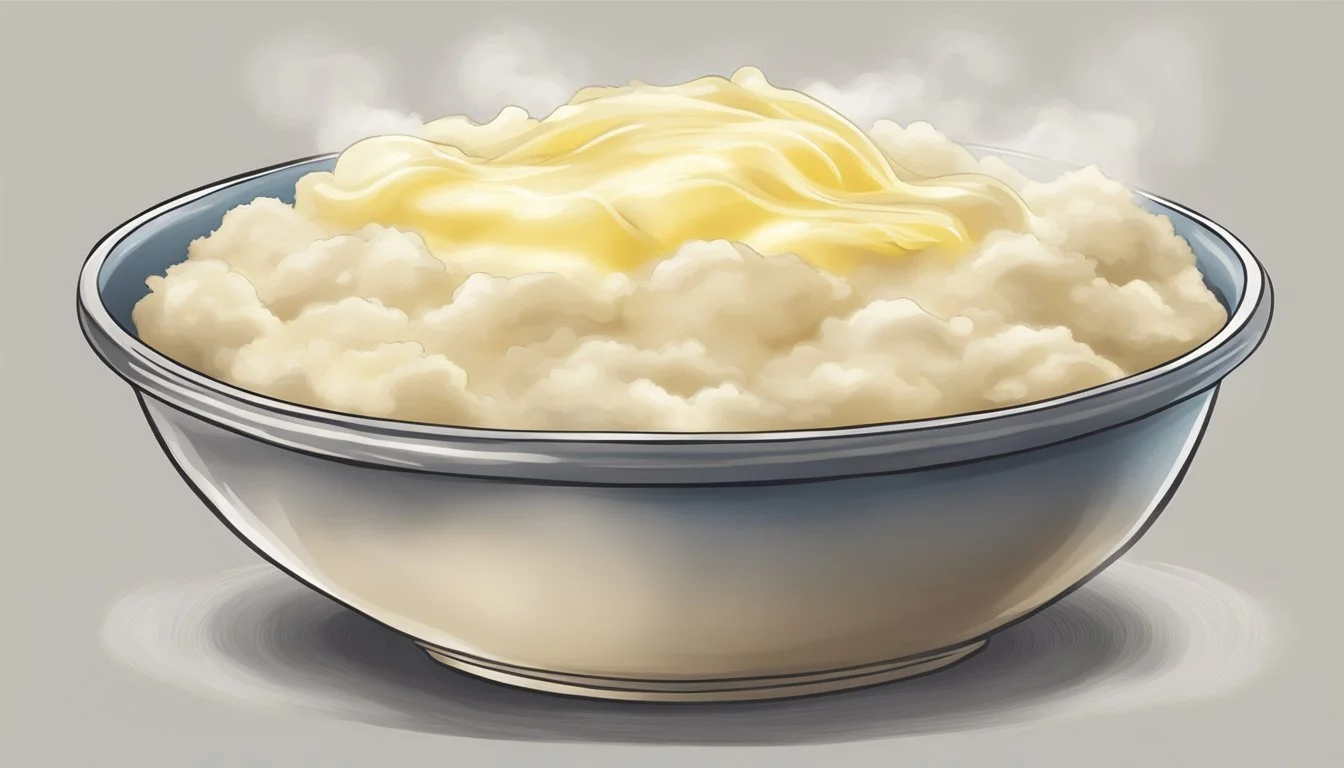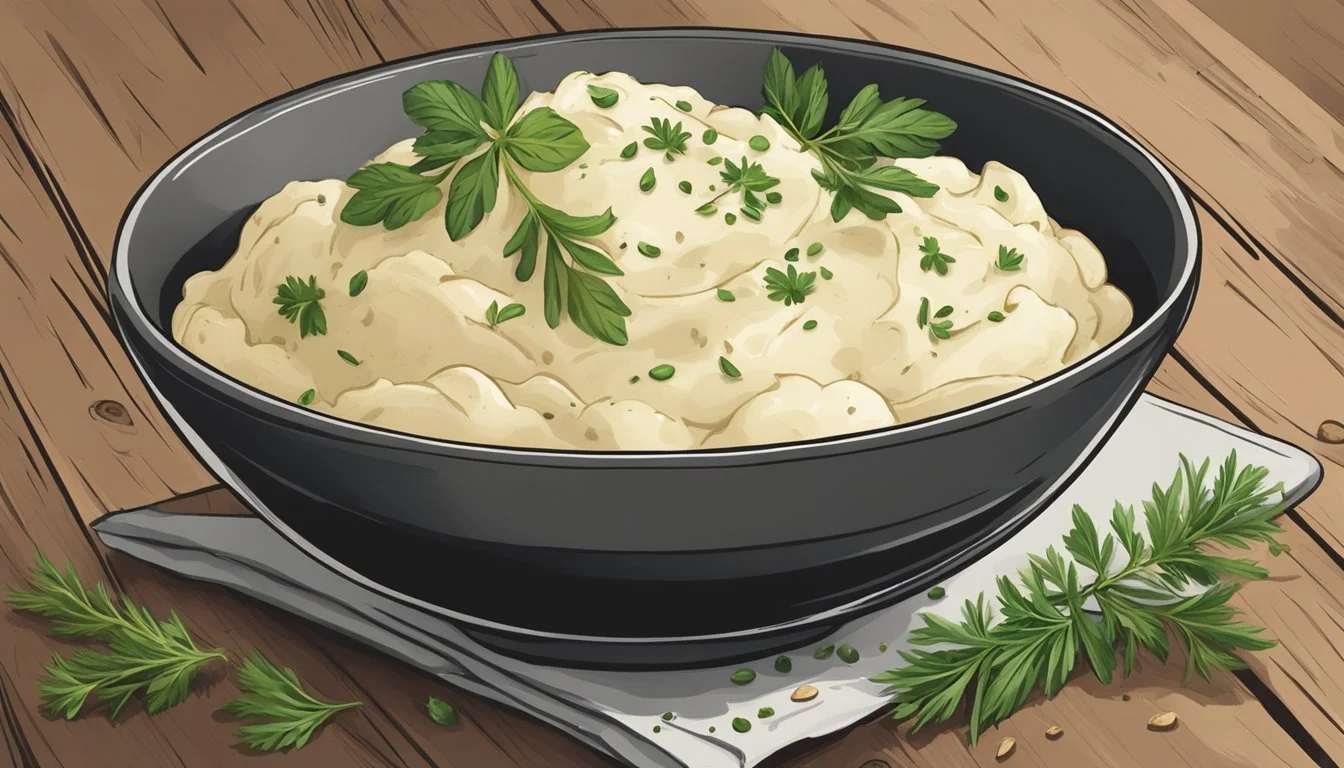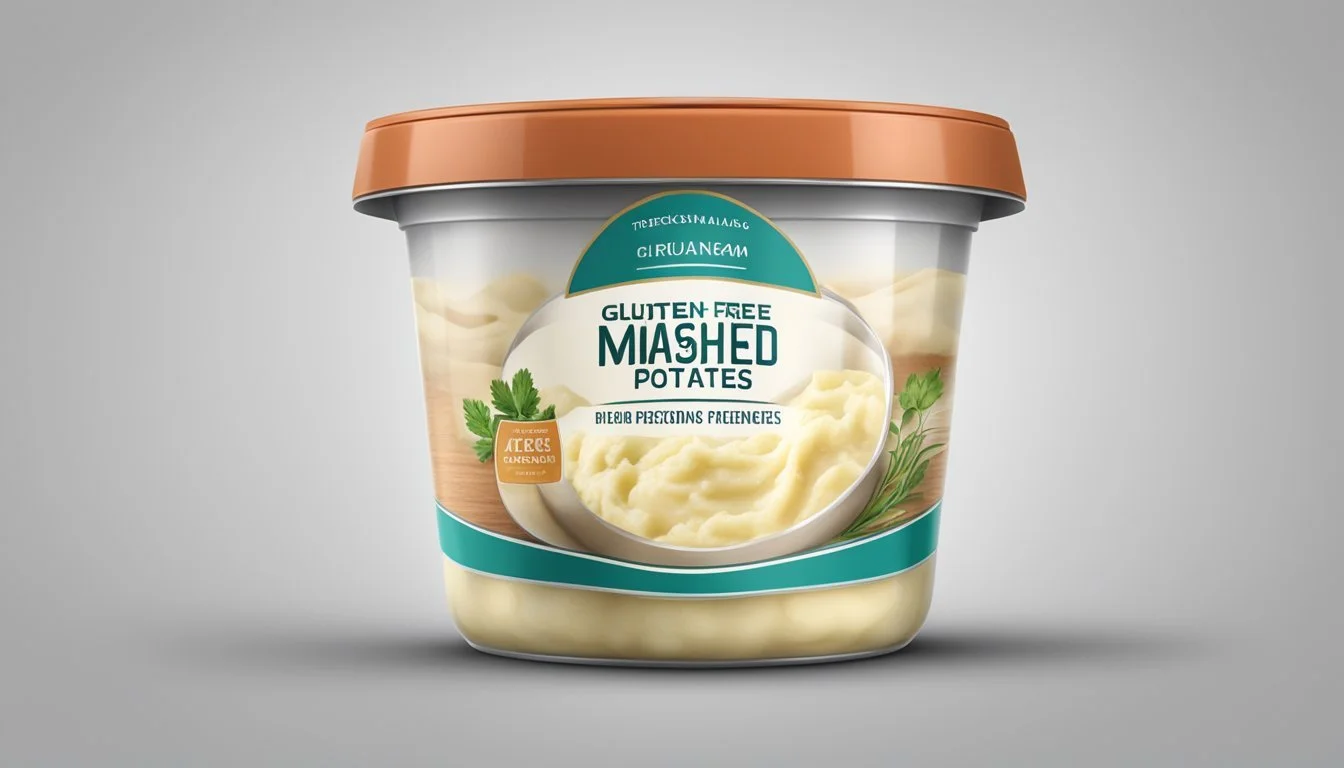How Long Do Gluten-Free Mashed Potatoes Last?
Storage Tips and Lifespan
Storing gluten-free mashed potatoes properly is key to enjoying them for as long as possible. When kept in an airtight container in the refrigerator, gluten-free mashed potatoes typically last for 3 to 5 days. This makes them a convenient option for meal prepping or enjoying leftovers throughout the week.
Another consideration for extending the lifespan of your mashed potatoes is freezing them. Properly stored in a freezer-safe container or bag, gluten-free mashed potatoes can last for up to two months. This can be a great way to ensure you always have a tasty side dish on hand.
It's important to keep an eye out for any signs of spoilage such as an off smell, discoloration, or mold. These are clear indicators that the mashed potatoes should be discarded. By following these storage tips, you can enjoy delicious gluten-free mashed potatoes longer and reduce food waste.
Gluten-Free Mashed Potatoes Overview
Gluten-free mashed potatoes are a naturally gluten-free side dish made by ensuring that no gluten-containing ingredients or cross-contamination occurs. The choice of potatoes impacts the texture and flavor of the mashed potatoes.
What Makes Mashed Potatoes Gluten-Free
Gluten-free mashed potatoes are made by selecting ingredients that do not contain gluten. Potatoes themselves are naturally gluten-free. Ensuring that no gluten-containing additives or seasonings are used is crucial. Common gluten-containing ingredients to avoid include certain broths, gravies, or flavorings that may have wheat-based additives.
Cross-contamination is another aspect to watch for. Use clean utensils, cookware, and surfaces to prevent any gluten from contacting the potatoes. For those highly sensitive to gluten, using certified gluten-free products ensures that no gluten presence affects their side dish.
Best Potatoes for Gluten-Free Mashed Potatoes
The type of potatoes used greatly influences the texture and flavor of gluten-free mashed potatoes. Russet potatoes are a popular choice. They have a high starch content, leading to fluffy, light mashed potatoes.
Yukon Gold potatoes are also favored for their creamy texture. They have a medium starch level and a buttery flavor, making them ideal for those who prefer less starchy mashed potatoes. Combining Russet and Yukon Gold potatoes can create a balance between fluffiness and creaminess, appealing to diverse palates.
Selecting the right potatoes is essential for achieving the desired consistency without gluten. For a smoother mash, use a potato ricer or food mill to ensure no lumps remain. Add dairy or non-dairy alternatives to enhance the creaminess while keeping the dish gluten-free.
Preparing the Potatoes
Properly preparing the potatoes ensures they achieve the right consistency and taste. Attention to detail in ingredient selection and cooking methodology is key to perfect gluten-free mashed potatoes.
Choosing the Right Ingredients
It's crucial to select russet or Yukon Gold potatoes as they yield a creamy texture. Fresh, firm potatoes without blemishes should be chosen for the best results.
In addition to potatoes, gather unsalted butter, salt, and whole milk or a dairy-free alternative if needed. Fresh garlic or garlic powder can add an extra layer of flavor. A potato masher, hand mixer, or potato ricer is essential for mashing.
Ensure all ingredients are gluten-free by checking labels, particularly for seasonings and dairy substitutes.
Steps to Making Gluten-Free Mashed Potatoes
Peel and cube the potatoes into uniform pieces to ensure even cooking.
Fill a large pot with cold water, placing the cubed potatoes so they are just covered. Adding salt to the water enhances the taste.
Bring the water to a boil over medium-high heat. Boil potatoes until they are fork-tender; this usually takes 10-15 minutes.
Drain the potatoes well, returning them to the pot. For added flavor, some recipes suggest drying the potatoes over low heat briefly after draining.
Add butter, salt, and your milk choice. If extra creaminess is desired, use whole milk.
Mash using your preferred tool—potato masher, hand mixer set to medium speed, or potato ricer. Avoid over-mixing to prevent gummy mashed potatoes.
Adjust seasonings as needed after mashing. Fresh herbs, roasted garlic, or dairy-free butter can be added at this stage.
Proper preparation creates a base that ensures the longevity and preserve the texture and taste of the mashed potatoes.
Customizing Your Dish
Tailoring gluten-free mashed potatoes to individual tastes is easy with the right ingredients and techniques. Here, you'll find methods for incorporating both dairy and dairy-free options as well as suggestions for seasoning and flavor variations.
Incorporating Dairy and Dairy-Free Options
For those who enjoy dairy, adding cream cheese, cheddar cheese, or parmesan cheese can make mashed potatoes rich and creamy. Heavy cream or regular milk also helps achieve a smooth texture. Consider melted butter, preferably kosher salt, and black pepper as essential base ingredients.
For a dairy-free version, dairy-free butter or vegan butter can be used instead of regular butter. Almond milk, coconut milk, or oat milk are excellent alternatives to achieve a creamy consistency. Some recipes even include an egg to add extra richness and bind the potatoes better.
Seasonings and Flavor Variations
Seasoning mashed potatoes can transform a basic dish into something extraordinary. Common seasonings include garlic powder, kosher salt, and black pepper. Fresh garlic or roasted garlic can add a robust flavor.
Adding fresh herbs like chives, parsley, rosemary, or thyme not only enhances the taste but also adds a pop of color. For those who enjoy a bit of crunch, try incorporating bacon bits or crispy fried onions.
Other ideas include blending in cream cheese or sour cream for tanginess or parmesan cheese for a savory depth. For those on a vegan diet, vegan cheese options work great as well.
Storing and Preserving Mashed Potatoes
Proper storage and preservation of gluten-free mashed potatoes ensure they remain safe to eat and retain their quality. This involves understanding refrigeration and freezing techniques to extend their shelf life.
Refrigeration and Shelf Life
Leftover gluten-free mashed potatoes can last up to 5 days in the refrigerator. To store, place them in an airtight container or cover the bowl tightly with plastic wrap to prevent drying out and absorbing other odors.
Before reheating, it's essential to add a small amount of milk or butter to restore the creamy texture. Reheat in a microwave or on the stovetop over low heat, stirring occasionally. Always ensure they reach an internal temperature of 165°F (74°C) to guarantee safety.
Freezing and Thawing Tips
For longer storage, mashed potatoes can be frozen for up to 2 months. To freeze, let them cool completely, then transfer them to a freezer-safe bag or container, squeezing out as much air as possible.
Freezing Tips:
Use flat, zip-lock bags to save space.
Label with the date for easy tracking.
Thaw in the refrigerator overnight.
Reheat slowly on the stovetop, adding dairy-free milk or butter as needed.
Stir frequently to ensure even heating.
Following these methods keeps gluten-free mashed potatoes safe, tasty, and ready to enjoy whenever needed.
Serving Suggestions
When serving gluten-free mashed potatoes, consider the best complementary dishes and presentation techniques to enhance both visual appeal and taste.
Pairing with Other Dishes
Gluten-free mashed potatoes make a versatile side dish that pairs well with a variety of entrees. For a holiday or Thanksgiving dinner, pair them with a juicy gluten-free meatloaf, roasted turkey, or gluten-free gravy. To add more variety, consider serving them alongside gluten-free scalloped potatoes or roasted sweet potatoes.
For everyday meals, mashed potatoes go well with grilled chicken, pork chops, or a hearty steak. Don't forget to include other side dishes like potato salad or even homemade french fries to complete the meal. The creamy texture of the mashed potatoes balances the savory notes of these dishes, making it a comforting choice for most occasions.
Presentation and Garnishing Ideas
Presentation is key to making your gluten-free mashed potatoes visually appealing. For a more elegant presentation, consider serving the mashed potatoes in individual ramekins or piping them into decorative shapes using a pastry bag with a large star tip.
Garnishing the mashed potatoes can add flavor and appeal. Sprinkle crispy bacon bits, freshly chopped chives, or parsley on top. For a pop of color, add a few roasted red pepper strips or a dusting of smoked paprika. A light drizzle of gluten-free gravy can also enhance the flavor profile, making the dish even more enticing.
By focusing on these pairing and presentation ideas, your gluten-free mashed potatoes can stand out as a comforting and versatile addition to any meal.
Nutritional Information
Gluten-free mashed potatoes are a popular choice for those with dietary restrictions. They can be made creamy and fluffy using dairy-free alternatives, providing options for various nutritional needs.
Understanding the Health Benefits
Nutrition: Gluten-free mashed potatoes are typically rich in carbohydrates, providing a good source of energy. Depending on the preparation, they can also contain vitamins and minerals such as vitamin C, potassium, and vitamin B6. For dairy-free versions, using almond milk or similar substitutes can reduce saturated fats and calories.
Creamy Texture: The creamy texture can be achieved without dairy by using alternatives like dairy-free butter and plant-based milks. These options maintain the fluffy consistency and offer a lighter nutritional profile.
Homemade Options: Making mashed potatoes at home allows control over ingredients, which can enhance the dish's nutritional value. Using Yukon Gold or Red potatoes can add varying textures and nutrient profiles, as they contain slightly different vitamin and mineral compositions.
Avoiding gluten and dairy can cater to dietary needs while still offering a satisfying dish that fits within American comfort food traditions.
Additional Resources and Information
Finding additional information on gluten-free mashed potatoes can enhance your understanding of recipes and community experiences. Below are key resources to help you cook and store gluten-free mashed potatoes effectively.
Online Recipes and Communities
For those seeking variety in their gluten-free mashed potato recipes, numerous online platforms offer step-by-step guides, ingredients lists, and preparation tips. Popular websites include Mary’s Whole Life and Gluten-Free Palate. These sites often provide star ratings and user reviews to help you select the best recipes.
Social media platforms like Pinterest, Instagram, and Facebook are also valuable for finding diverse recipes and connecting with communities. On Pinterest, you'll find curated boards with themed gluten-free recipes. Instagram showcases beautiful photos and cooking tutorials, while Facebook offers groups where members share tips and experiences.
Engaging with these resources helps you discover new flavors, preparation techniques, and storage advice, ensuring your gluten-free mashed potatoes are always delicious.








